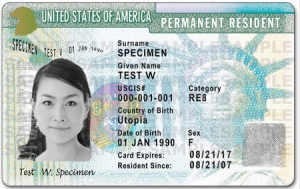
by Third Bass
“We are not our own any more than what we possess is our own. We did not make ourselves, we cannot be supreme over ourselves. We are not our own masters.”
-Aldous Huxley, Brave New World
The journey–from filling out a few forms, gathering some docs, and hopping on a plane–to full-on liferdom in Korea is a road many have traveled. Below is nothing more than my own particular road, which has its unique attributes, but like a river with thousands of tributaries, shares a common terminus.
Prologue
“So what am I going to do?” These thoughts had been rolling over in my head throughout the spring term of 2008. I was fast approaching the end of my four year stint as a graduate fellow at Temple University, and while it was a fairly Spartan existence, it had provided me with the comfort of laying out a path to follow. Thus, beyond my true enjoyment of learning, being a student carried with it the additional benefit of offering a clear answer to the question: “What am I supposed to be doing?” I had a dissertation topic pretty much hammered out and my exams were finished; but hanging around for a few more years living semester to semester with the hopes of getting by as an adjunct just struck me as unappealing. “I know!,” I thought. “I’ll get a job. At least part-time, make some ‘real’ money. Like enough to take a woman out on a proper date without expending twenty percent of my monthly disposable income.”
So on a sunny spring afternoon in late May, I sat down at my computer and hit Craigslist looking for part-time work in Philadelphia, or maybe DC. At that moment, a little pop-up icon appeared on the screen: Have a degree? Live and teach in Korea! So I clicked the button…
Act I
Roughly five weeks later–much to the chagrin of my dissertation advisors and parents–I was touching down at Gimhae Airport with the mixture of excitement and anxiety that surely washes over most newbies upon their arrival. All that I knew of Korea derived largely from my background as a fledgling lefty political economist: the country offered a compelling illustration of a successful alternative to the neoliberal, Washington Consensus development paradigm (Chang Ha- Joon’s “Kicking Away the Ladder” is a definitive text on the subject) and it had been one of the many military dictatorships that the U.S. backed in the name of fighting communism. But here I was, on a total whim and putting my career (unpromising as it was) at risk in the name of a new adventure and no longer living in grad student semi-poverty.
“Well, even if my work suffers,” I told myself, “I can just go back, adjunct, and finish my dissertation. It’s only a year”
And there I was
Marriage came a year later; we were both set on moving to the U.S. and building our life together there. “Okay,” I said to myself, “So maybe my dissertation got pushed backed two years and my advisers are becoming increasingly distressed, but it was all worth it. I have a fantastic wife and I’ve met so many great friends. We’ll be on our way in about four or five months and I will pick up just where I left off…”
ACT II
Several months after our nuptials, we were cruising through the green card process. The first major hurdle had been cleared and we had only a few boxes left to check before our American life would commence. We headed down to the hospital designated by the U.S. Embassy for her medical check and would send off out final paperwork a few weeks thereafter. A few days later we got the word: my wife had been diagnosed as a carrier of latent TB, which while not currently posing any serious health problems could at any time become active. More importantly, it had to be totally cleared for our visa application to move forward. As we found out, this involved six months of taking heavy doses of antibiotics and a three month period after that to confirm that it had been fully eliminated.
Beyond my immediate concern for my wife’s health, this also threw a significant monkey wrench in our plans, as I had hoped to be back in time to pick up a few classes at Temple and elsewhere for the spring semester. But this was the reality the fates had laid before us; we had to now accept that our departure would be delayed by a year or more.
It was during this period that the tendrils of liferdom began to slowly probe the deep recesses of my inner thoughts. I began to really take stock of what life in America would entail for us. Sure, on my own I could get by check to check, semester to semester, chasing classes, writing my dissertation, and eking out a bare existence. But could my wife handle this? How would this affect our just-ordained union? After all, Korea has a lot of positives. We’re sure not rich, but we’re not poor either. We’re not struggling in a way that would certainly define the first few years of our life in the States.
At some point we had a talk. I expressed my concerns and reservations about moving ahead with our plan, even after my wife had been cured and cleared for her visa. We were both a bit let down, as we had been excited by the promise of a new adventure together. But we were slowly adjusting to our lives as married adults, and deciding to stay in Korea for the foreseeable future was one of those sober, ‘adult’ decisions born out of sheer practicalities, rather than one driven by desire, exuberance, and passion.
“Great”, I said to myself, “We here to stay at least for several more years and Korea is a pretty cool place to live. I have a wonderful wife, great friends, and a comfortable life. Good enough.” But, hiding behind this comfort was the anxiety of my ever waning dissertation. Over three years and I had produced squat in terms of progress. My advisors were still friendly, but I sensed that they increasingly viewed me as just another lapsed ABD (All But Dissertation) who threw away a free education because he lacked the discipline to hunker down and crank out the big paper. My advisors were running thin on patience, but I wasn’t ready to throw in the towel just yet.
ACT III
About a year later, an email went out with a clear message: Move forward with your dissertation, or take a hike. They weren’t being nasty–just making it very clear that my failure to progress had reached its limitations. In the years spent in the academic wilderness, falling in love and carousing with friends, I had grown to dislike the project that I formulated all those years ago. In an intense consultation with my advisors, they noted that in previous discussion I’d always became most animated when I spoke about Korean politics and history, which I had taken to studying as a sort of personal hobby.
So one of my advisors said, “Why don’t you just write your dissertation on the Korean political economy?” Click. Yes, that is it. The cycle becomes complete. I am now settled here. I have a Korean family. This is where my life is. Why not go all in and reinvent yourself as an expert on the Korean political economy?
Suffice to say, I delved into to my new project with an almost missionary zeal. I was finally engaging in the kind of research that really interested me. Not only that, this work was directly connected to the new life I had forged here on the peninsula. Studying the political permutations of Korea’s deepening interface with the international economy is one filled with a passion rarely found elsewhere. In few other countries will you find people self-immolating to protest an increase in the imported rice quota from 2.5% to 4.5%. At present, it’s well over half done and I just had a very positive meeting with my advisers during my visit to the States last month.
So, there it is: My reality denying, sort-of-working holiday, career sabotaging, one year junket to Korea has left me firmly rooted here in Busan with a new Korean family, in the midst of revitalizing my long-dormant career as a Korean expert. The Koreanization of my life has come to fruition… except for still totally sucking at the language.




